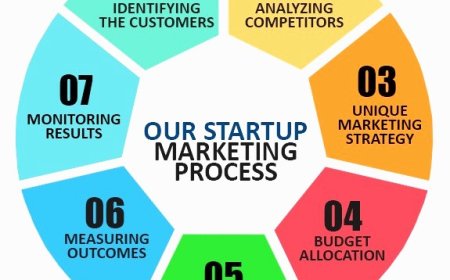The Ultimate Guide on How to Plan a Business
Planning a business requires careful consideration and a systematic approach. Here's an ultimate guide on how to plan a business:

Planning a business requires careful consideration and a systematic approach. Here's an ultimate guide on how to plan a business:
-
Define Your Business Idea:
- Clearly articulate your business concept, product, or service.
- Identify your target market and understand its needs.
- Conduct market research to validate your idea's feasibility.
-
Conduct a SWOT Analysis:
- Evaluate your business's strengths, weaknesses, opportunities, and threats.
- Identify factors that could impact your success or pose challenges.
- Use this analysis to inform your strategy and decision-making.
-
Set Clear Goals and Objectives:
- Define your short-term and long-term goals.
- Ensure your goals are specific, measurable, achievable, relevant, and time-bound (SMART).
- Establish key performance indicators (KPIs) to track progress.
-
Develop a Business Plan:
- Create a comprehensive document outlining your business strategy.
- Include sections on executive summary, company description, market analysis, organization and management structure, product or service offerings, marketing and sales strategy, operational plan, and financial projections.
- Tailor your business plan to your audience (e.g., potential investors, lenders, partners).
-
Determine Your Legal Structure and Register Your Business:
- Choose the legal structure that suits your business (e.g., sole proprietorship, partnership, corporation).
- Register your business with the appropriate government authorities.
- Obtain any necessary permits or licenses for your industry.
-
Establish Your Team:
- Determine the roles and responsibilities needed to run your business.
- Recruit and hire qualified individuals or outsource tasks as required.
- Foster a positive work culture and provide necessary training and support.
-
Develop Your Marketing and Sales Strategy:
- Identify your target audience and create buyer personas.
- Determine your unique selling proposition (USP) and competitive advantage.
- Outline your marketing channels, pricing strategy, and sales approach.
- Develop a marketing budget and implement effective promotional activities.
-
Create an Operations Plan:
- Define your operational processes, including production, inventory management, and quality control.
- Identify suppliers, establish relationships, and manage the supply chain effectively.
- Develop contingency plans to address potential risks or disruptions.
-
Build a Financial Plan:
- Estimate your startup costs, ongoing expenses, and revenue projections.
- Create a budget and cash flow forecast.
- Explore financing options and secure necessary funding.
- Monitor and analyze your financial performance regularly.
-
Implement and Adapt:
- Execute your business plan while monitoring progress against your goals.
- Stay agile and adapt your strategies based on market feedback and changing circumstances.
- Continuously review and refine your business processes and offerings.
Remember, planning is an ongoing process. Regularly review and update your business plan as your business evolves and new opportunities arise. Seek guidance from business mentors or professionals to enhance your planning process and increase your chances of success.
What's Your Reaction?












































